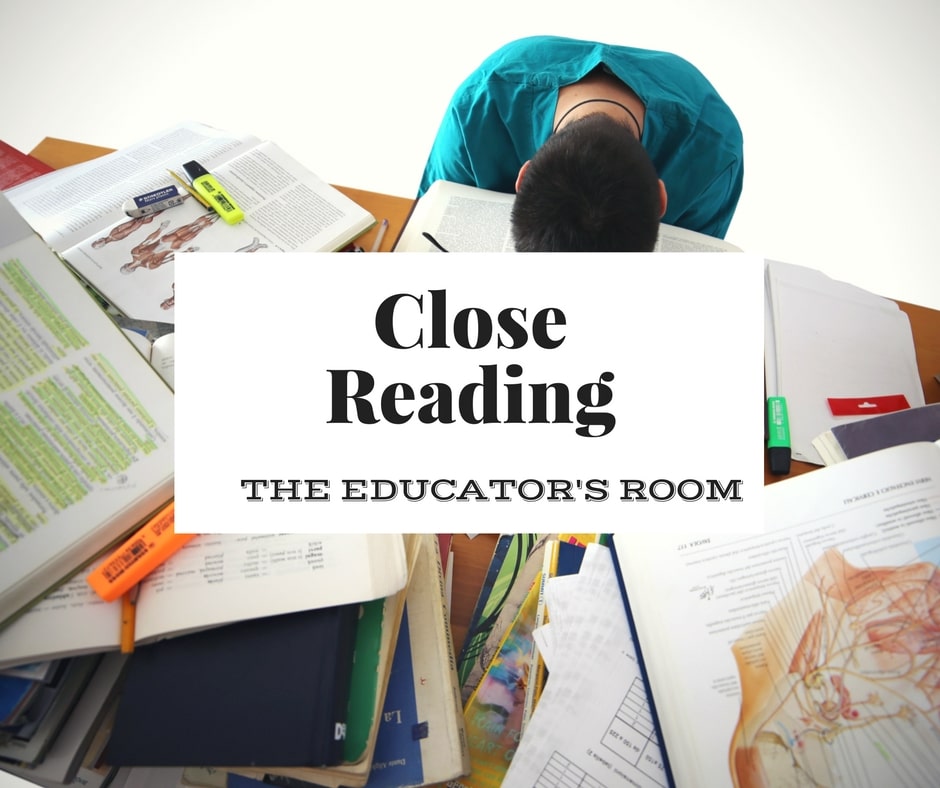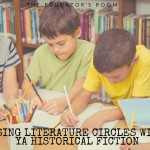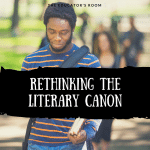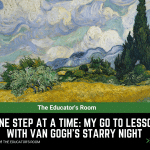This is the fourth post in a series about teaching Close and Critical Reading. The first post explaining what CCR is can be found here, the second on summary is here, and the third on writer’s craft is here.
The third portion of Close and Critical Reading (CCR) asks the students: Why did the author write this?
The main skill students should use to answer this question is inference, to figure out the main theme/message of the piece. Being able to infer requires students to master the first two steps of CCR: summarizing and identifying rhetorical devices. The idea is that students will base their inferences about a text on what the text says and how it is said.
I start teaching inference to my 8th graders on the first day of school, although I don’t necessarily identify what they are doing as inference until later. To help students get to know me, I have a presentation with pictures of myself and my family that I do. After the presentation, I ask the students, based on what they saw and how I talked about each slide, what conclusions can they draw? Sometimes I lead them with questions like “how do I feel about my three-year old’s love of climbing? How do you know?” or “How do I feel about the beach? How do you know?” Then I move into, “Why do you think I did this presentation? What do you think I want you to get from it? How do you know?”
This sort of questioning is scaffolded into all lessons after that. Whether we are listening to a monologue, watching a video clip, or reading a passage, students are asked to think about WHY the speaker or writer is communicating with their particular audience.
Most of the reading my students do is independently chosen. I follow a Reader’s Workshop model, so I conference with each student every couple weeks about what they are reading. A typical conference involves us chatting about the book the student is currently reading, but I also ask a variety of questions that encourage students to think critically about what they read. Some of these questions include (questions in bold are specifically related to inference):
- What is your book about?
- Who are the characters? Do you like them? Why?
- What is the main character like? How do you know?
- Based on what you read, do you think your character would _____? Explain
- Do you trust the narrator? Why or why not?
- Why do you think the author wrote this book?
- If this character did/didn’t do ______, how would that change things?
- Why did you pick this book?
- Do you think you’ll read more like this?
- What do you think ______ is supposed to represent/stand for? Why?
My conferences take only 3-4 minutes, so sometimes we only talk about one of these questions if we really get into it. At some point with each student, I want them to think about the purpose the author had in publishing the book in their hands–the message they should walk away with.
While inference works easily into fiction, it can also work well with reading graphs, reports, and even math problems. Students tend to get the purpose in terms of whether the author is trying to persuade or inform, but they often need to be prompted to “finish” the statement.
“The author is persuading readers” should be “The author is persuading readers to _________ BECAUSE _____.”
“The author is informing readers” should be “The author is informing readers about ______ BECAUSE ______.”
Like the previous Close & Critical Reading Questions, this one can be applied across the curriculum. In fact, being able to make strong inferences about what we read is what makes us a more literate and intelligent citizen.
What are some ways you teach your students to make inferences in your class?







